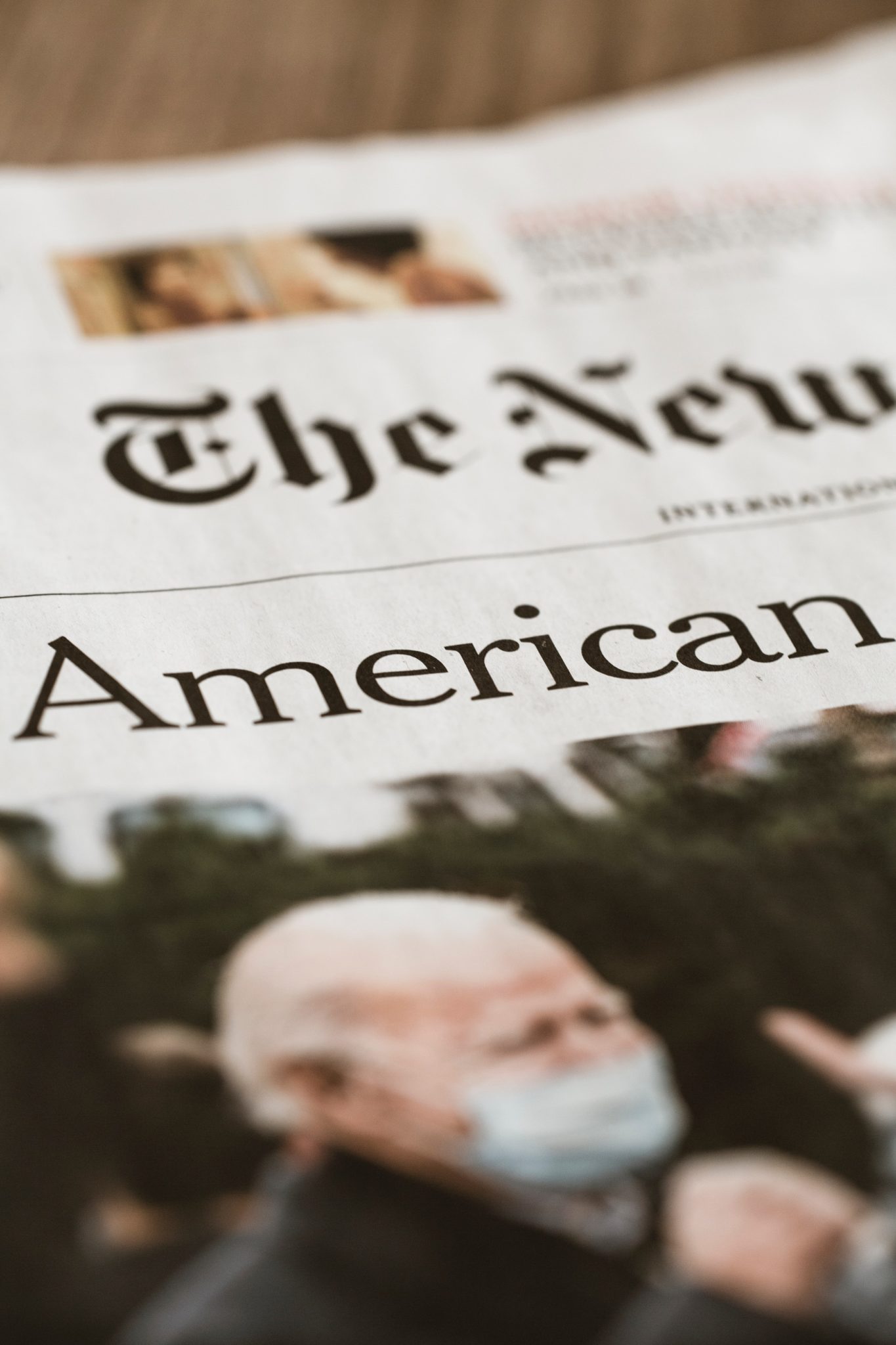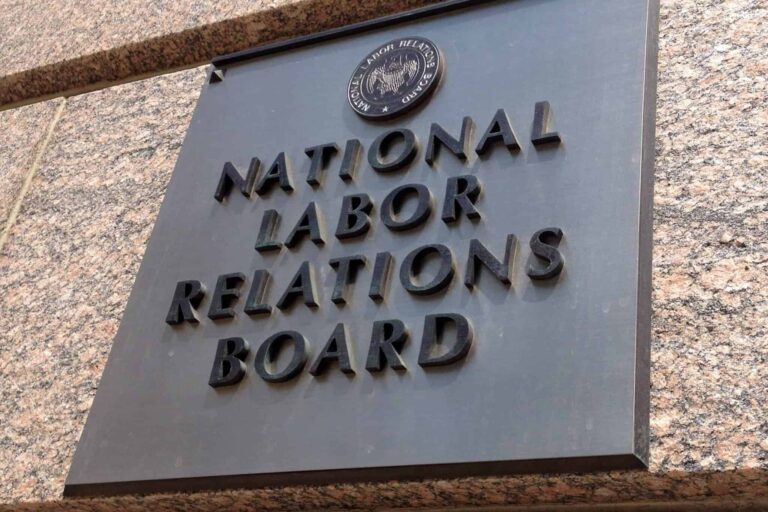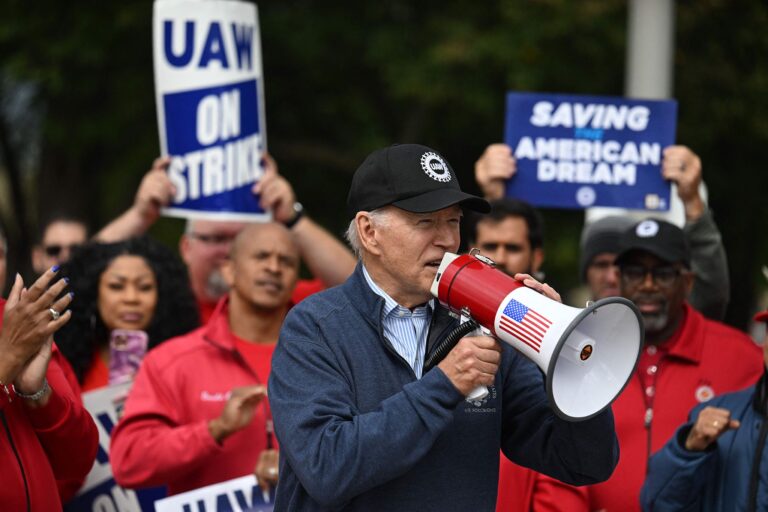
Andrew Strom has been a union lawyer for more than 25 years. He is an Associate General Counsel of Service Employees International Union, Local 32BJ in New York, NY. He is the author of Caught in a Vicious Cycle: A Weak Labor Movement Emboldens the Ruling Class, 16 U.St. Thomas L.J. 19 (2019); Boeing and the NLRB: A Sixty-Four Year-old Time Bomb Explodes, 68 National Lawyers Guild Review 109 (2011); and Rethinking the NLRB’s Approach to Union Recognition Agreements, 15 Berkeley J. Emp. &; Lab. L. 50 (1994), and has written for Dissent and Dollars and Sense. He also taught advanced legal writing at Fordham Law School. He received his J.D. magna cum laude from Harvard Law School. The views he expresses on this blog are his personal views, and should not be attributed to SEIU Local 32BJ.
There has been a lot of anticipation that President Biden’s appointees to the National Labor Relations Board will reverse the decisions of the Trump Board that overruled opinions issued by the Obama Board. But labor law was still a disaster in dozens of large and small ways on January 20, 2017, and that’s unlikely to change over the next two years.
To take one example, consider the arbitrary rule that prevents unions from keeping track of which workers have voted during the course of a representation election. The NLRB first addressed this in 1951 in International Stamping. There, the company president’s son went through the plant with a list of eligible voters, called their names from the list, and checked each voter’s name as they went to vote. The Board set aside the election since this conduct violated an NLRB policy that prohibited anyone from keeping a list of persons who voted.
The decision does not explain why the NLRB maintained this policy, but the legislative history of the NLRA sheds some light on this. As Craig Becker explained in a 1993 law review article, one steelworker had testified before Congress that employers would run elections for company unions and “if you refused to vote they took down your check number and name and marked you as declining to vote.” Given this history, it made sense that the NLRB wanted to reassure workers that even if an election was taking place on the employer’s premises, the employer would not be allowed to signal to workers that it was running the election.
Shortly after the International Stamping decision, in Belk’s Department Store, the NLRB addressed a situation where two employees, who were standing near the store manager, had a payroll list and checked off the names of employees as they went to the polling place. While there was no finding that the two employees were acting at the direction of the employer, the Board’s decision noted the proximity of the store manager and other supervisors in concluding that the conduct of the two employees “tended to prevent a choice of representatives in a free atmosphere.” The Board further reaffirmed its policy “to prohibit anyone from keeping any list of persons who have voted.”
In a 1967 case, Piggly-Wiggly, the list-keeping was done by union representatives, with no supervisors present. The election involved workers at two supermarkets, and the union representatives stationed themselves outside the entrance to each store, checking off workers’ names on a list as they entered the store to vote. The workers voted for union representation, but the Board set aside the election, citing its policy against list-keeping. There was no discussion of the rationale for the policy, or whether it made sense to apply the policy equally to unions and employers. In a subsequent case, Masonic Homes of California, the Board set aside an election based on a finding that the union’s observers had kept a list of voters’ names and made marks on that list. The Administrative Law Judge explained that keeping lists of voters is improper “if employee voters know, or reasonably can infer, that their names are being recorded.”
It wasn’t until 1992, in Days Inn Management Co., that the Board offered an explanation for the list-keeping rule. In that case, a supervisor stood inside the entrance to the hotel lobby with a list of workers, and as each worker arrived in the lobby, he met them, took their names, and openly crossed them off the list. In addition to referencing the previous list-keeping cases, the Board found that workers could assume from this conduct that “their organizing activity had been placed under surveillance” by the employer. The NLRB has long held that an employer commits an unfair labor practice when it engages in surveillance of employees’ union activity, or even when an employer creates the impression that it is engaging in such surveillance. By contrast, of course a union will know which workers attended a union meeting. Likewise, an employer may not ask workers if they have signed union authorization cards, but, of course, unions are allowed to keep track of that information.
One reason for this asymmetry is that even if workers vote for union representation, the employer retains all of its power to fire, discipline, reward, promote, assign, and transfer workers. But if workers vote against union representation, the union has no power whatsoever over the workers. At times, the Board has acknowledged that this power differential justifies treating unions and employers differently. For instance, it’s illegal for an employer to threaten workers that they will be fired if they vote for union representation. But when employers have alleged that the union threatened workers that they would lose their jobs if they voted against union representation, the Board has refused to set aside votes in favor of unionization. As the Ninth Circuit has explained, “employees could be expected to conclude that the Company would not retaliate against those who aided its cause by voting against the Union.”
In a representation election, an employer isn’t supposed to be tracking “yes” and “no” votes, but a union is expected to know who its supporters are. There isn’t anything nefarious about a union attempting to turn out its supporters, including keeping track of who has voted already so that the union can target its efforts. So why does the Board stubbornly adhere to its rule against list-keeping? One reason is that the Board’s procedures deter unions from challenging the rule. In order to raise a challenge, a union would have to openly engage in list-keeping, inviting an employer to file objections. Even if a union was confident that the Board would rule in its favor, it would make no sense to invite litigation that would delay bargaining for years.
The same is true for so many terrible labor law doctrines. While some Board doctrines have ping-ponged back and forth in recent years, many have remained unchallenged because unions often can’t afford to leave workers in limbo for five years while they wait to establish a new legal principle. I understand that rulemaking is no panacea — it can be time-consuming and very resource intensive. But if the Board does not engage in more rulemaking on substantive issues, much bad Board case law will likely last forever.










Daily News & Commentary
Start your day with our roundup of the latest labor developments. See all
April 23
Supreme Court hears cases about 10(j) injunctions and forced arbitration; workers increasingly strike before earning first union contract
April 22
DOL and EEOC beat the buzzer; Striking journalists get big NLRB news
April 21
Historic unionization at Volkswagen's Chattanooga plant; DOL cracks down on child labor; NY passes tax credit for journalists' salaries.
April 19
Alabama and Louisiana advance anti-worker legislation; Mercedes workers in Alabama set election date; VW Chattanooga election concludes today.
April 18
Disneyland performers file petition for unionization and union elections begin at Volkswagen plant in Tennessee.
April 18
In today’s Tech@Work, a regulation-of-algorithms-in-hiring blitz: Mass. AG issues advisory clarifying how state laws apply to AI decisionmaking tools; and British union TUC launches campaign for new law to regulate the use of AI at work.